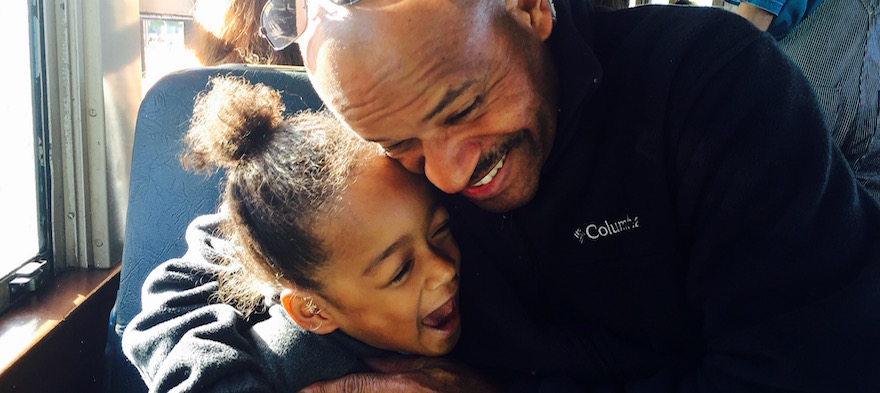Outrage: “Whites Only” Seats
The Connecticut Supreme Court made a ruling in Sheff v. O’Neill that was supposed to integrate schools. Instead, it capped the number of students of color who can enroll at magnet schools, saying that 25 percent of each school’s seats must be occupied by White students.
And while some of those magnet schools are holding seats for White kids, students of color are forced to attend failing schools.
Parents like Gwen Samuel aren’t having it.
They’re suing the state and holding demonstrations outside of Hartford courthouses to show they mean business.
We had "class" literally in front of federal court abt what justice&injustice looks like in education-kids used emojis to express how they felt. Shld schls treat kids fairly regardless of skincolor?😄Should any schl treat kids differently bc of skincolor 😡https://t.co/UbPsWuOIEg pic.twitter.com/eBDFHQ5gOL
— Yep! I'm "That" Mom (@RealTalkGwenS) October 17, 2018
Meanwhile in Chicago, the Annual Regional Analysis revealed that there are 60,000 empty seats in some of the highest performing schools in the city, with 27 percent of Black students attending some of the district’s lowest-performing schools.
Not to mention that most of these empty seats in top-ranked schools, many with sought-after programs like arts or International Baccalaureate, are in the mostly White neighborhoods of our ultra-segregated city. What a coincidence.
Now I’m not a data analyst or anything but when I heard this about the schools in my city, I immediately asked myself a couple of questions:
Why are there so many empty seats in good schools?
Why don’t families know about these openings?
Why are some Black and Brown kids struggling in poor-performing schools when they could be attending good ones?
I’m pissed. Gwen is pissed. Are you telling me that more than 60 years after Rosa Parks, we still have seats marked, “Whites Only”?
Hope: East Coast/West Coast Love
Remember in 1995 when the West Coast and East Coast were divided? When we had to choose between Bad Boy and Death Row, Biggie and Pac? Those were rough times!
In 2018, things have changed—at least in Black education activism.
Out East last weekend, The Fellowship: Black Male Educators for Social Justice held their second national Black Male Educators Convening in Philadelphia.
#BlackMaleEducators #TQRP18
coming to a classroom near you #BlackKings pic.twitter.com/tLKOIUjJwv— Mr. KDP🤴🏾 (@CoachLutherF) October 14, 2018
Meanwhile, on the West Coast, the State of Black Education Oakland is holding its final community event to launch the “Black Paper,” a set of commonsense proposals that Oakland can do right now to fix the ridiculous racial disparities in its schools.
Please join SoBEO for the celebratory release of our community generated policy recs– the Black paper- and hear from Black elders, parents, educators and families about what they need https://t.co/BkaSUrcywQ
October 20th
Geoffrey’s Inner Circle#SoBEO #BlackPaper pic.twitter.com/qpF7ST6Mk6— Dirk Tillotson (@dirktillotson) October 11, 2018
The Black male educator conference was born out of need and support. The need is to grow our teacher diversity beyond the current 2 percent of Black male educators across the country. To get there, longtime activist and school leader (and my fellow Ed Post blogger) Sharif El-Mekki co-founded this event to support other the men who were in the profession or considering it.
Meanwhile, the State of Black Education Oakland is a collaboration that draws on families, students, educators and elders—including Ed Post blogger Dirk Tillotson, fearless school board member Jumoke Hinton Hodge, powerhouse parent organizing group Oakland Reach, Charles Cole III’s Energy Convertor student fellows and more.
Note, both of these events address key inequities in education for students of color: the need for more educator diversity and family and community voice.
Note, both of these events were born out of conversations that took place in the community.
Bigger note: We can start holding events just like these all over the country. Philly and Oakland are just giving us the blueprint.
I am young, black, a first generation college grad from D.C, and I teach. This weekend I went to philly for a black male educators conference. Only 2% of teachers are black males, which is not enough. We are fathers, husbands, sons, but most importantly we are black! pic.twitter.com/g4AUn5NRV1
— Shaq✍🏾🎨 (@ShaqQuest) October 14, 2018
Tanesha Peeples
Latest posts by Tanesha Peeples (see all)
- Why Are Black Families Leaving Chicago? Maybe They Can’t Afford to Wait for Better Schools. - November 19, 2021
- We Don’t Give a Damn About Equity Initiatives Without Intentional Investment in Our Kids - November 4, 2021
- I’ll Believe Y’all Are Serious About Black Lives Mattering When You Send More of Our Kids to College Instead of Prison - October 20, 2021
